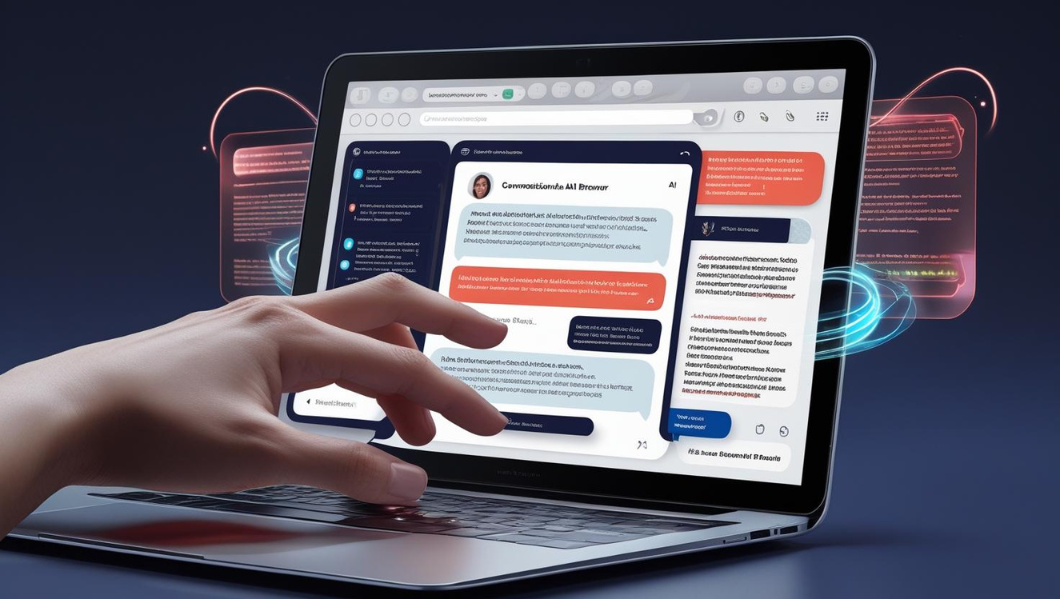Blog
Google AI Browser Incoming—Will Brands Be Ready for the Shift to Conversational Search?

The search landscape is on the cusp of a seismic transformation, driven by AI-powered marketing automation and a new wave of conversational AI browsers. On July 10, 2025, Reuters reported that OpenAI is set to launch a web browser powered by conversational AI, positioning itself as a direct challenge to the dominant Google Chrome browser. This new generation of AI-native browsers promises to redefine how users interact with the web—moving from traditional keyword-based searches to fluid, prompt-level conversations that deliver instant, context-aware answers.
As conversational AI browsers emerge, marketers and brands face a crucial question: Are they prepared to thrive in this new era of implicit searches and AI-driven user engagement?
The Rise of Conversational AI Browsers
Unlike conventional browsers that rely heavily on typed queries and link-based results, conversational AI browsers leverage advanced natural language understanding to interpret complex, multi-turn prompts. Users won’t just “search” anymore—they’ll converse with their browsers to get summarized, actionable insights, recommendations, and personalized content.
This shift is expected to:
- Reduce reliance on traditional search result pages (SERPs).
- Prioritize concise, high-quality AI-generated summaries with citations.
- Encourage interactive, follow-up questions for deeper exploration.
- Drive implicit search behavior, where intent is gathered from conversational context rather than explicit keywords.
Why This Matters for Brands
With conversational AI blurring the lines between search, chat, and content discovery, brands risk losing visibility if they rely solely on conventional SEO tactics. Instead, they must embrace an AI-native content strategy that aligns with the way users will now seek and consume information.
How ProjectBloom Prepares Brands for the Conversational AI Era
ProjectBloom is uniquely positioned to help brands navigate this shift with cutting-edge AI tools designed for the new search paradigm.
1. AI-Native Content Agents
ProjectBloom’s AI agents generate content optimized not just for keywords, but for contextual relevance and natural language understanding—key factors that conversational browsers prioritize.
2. Retrieval-Augmented Generation (RAG) Pipelines
By integrating vast knowledge bases and real-time data, ProjectBloom uses RAG pipelines to produce dynamic, accurate, and up-to-date responses that resonate with conversational AI’s demand for precision.
3. Continuous Optimization
Through ongoing analysis of conversational prompts and user interactions, ProjectBloom enables brands to refine their content and engagement strategies in real-time, ensuring they remain front and center in evolving AI-driven search experiences.
What Brands Should Do Now
- Audit existing content to identify gaps in conversational and contextual relevance.
- Invest in AI-powered content generation and management platforms like ProjectBloom.
- Optimize for multi-turn queries and user intent, not just keywords.
- Prepare for a future where search results are AI-generated answers, not links.
The Future of Search Is Conversational—and It’s Coming Fast
The emergence of AI-powered browsers signals a new era where brands must rethink how they create, optimize, and distribute content. Staying visible in this landscape means adopting AI-first strategies today.
ProjectBloom equips your marketing team with the tools to lead—not follow—this AI-driven search revolution.
🚀 Ready to future-proof your brand’s presence? Request a demo and see how ProjectBloom’s AI-powered marketing automation keeps you ahead of the conversational search curve.
References
Reuters. “OpenAI to release web browser in challenge to Google Chrome,”